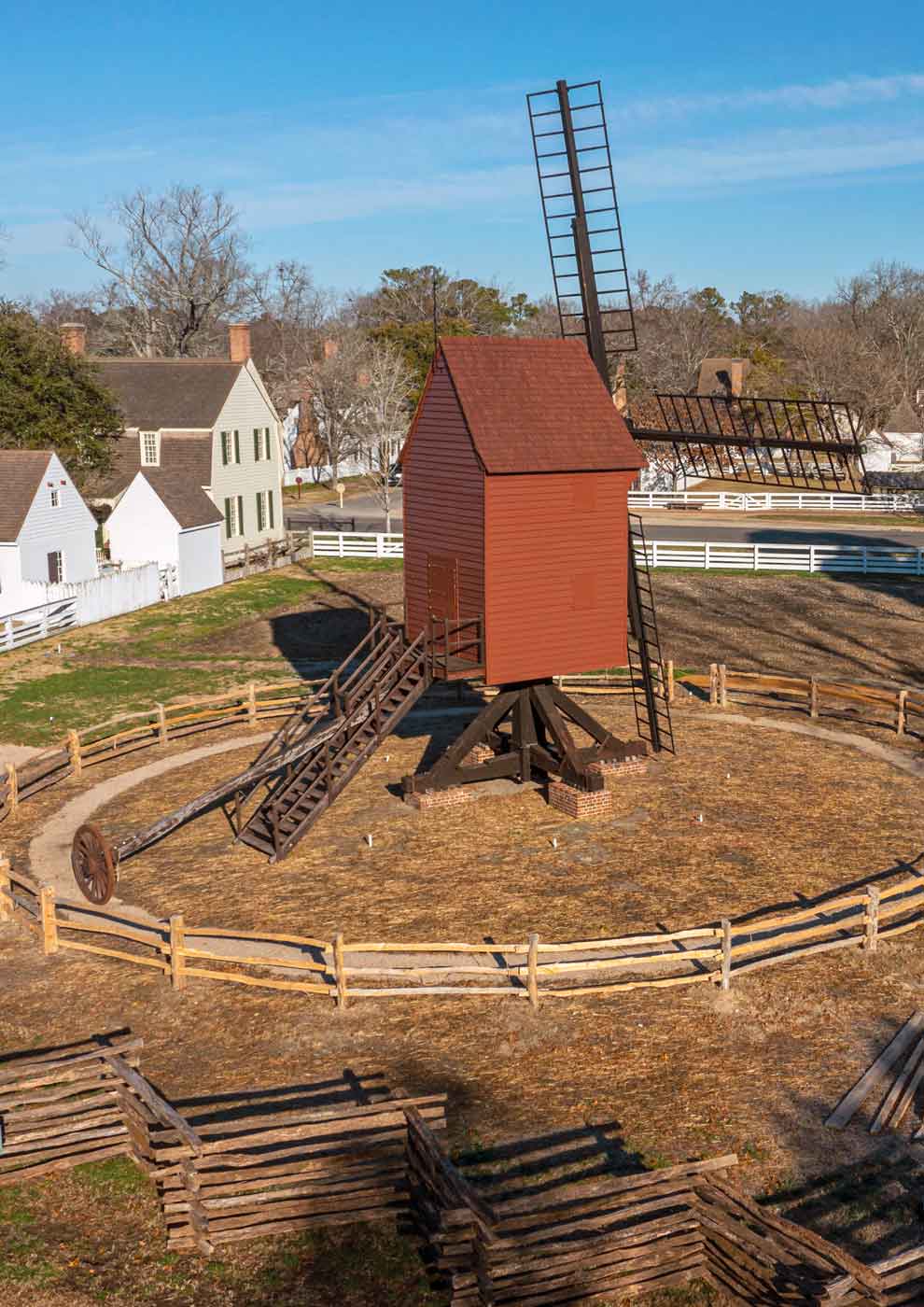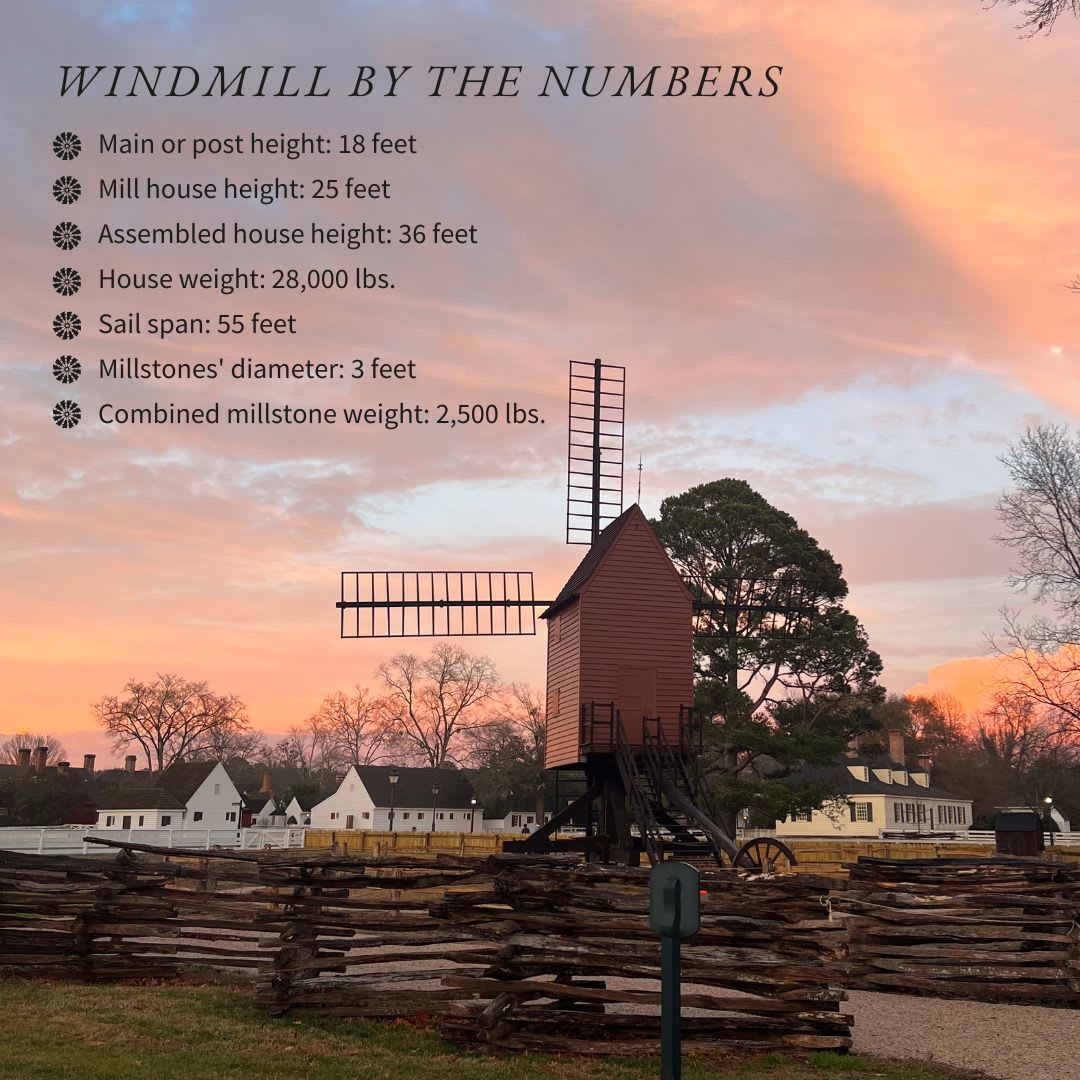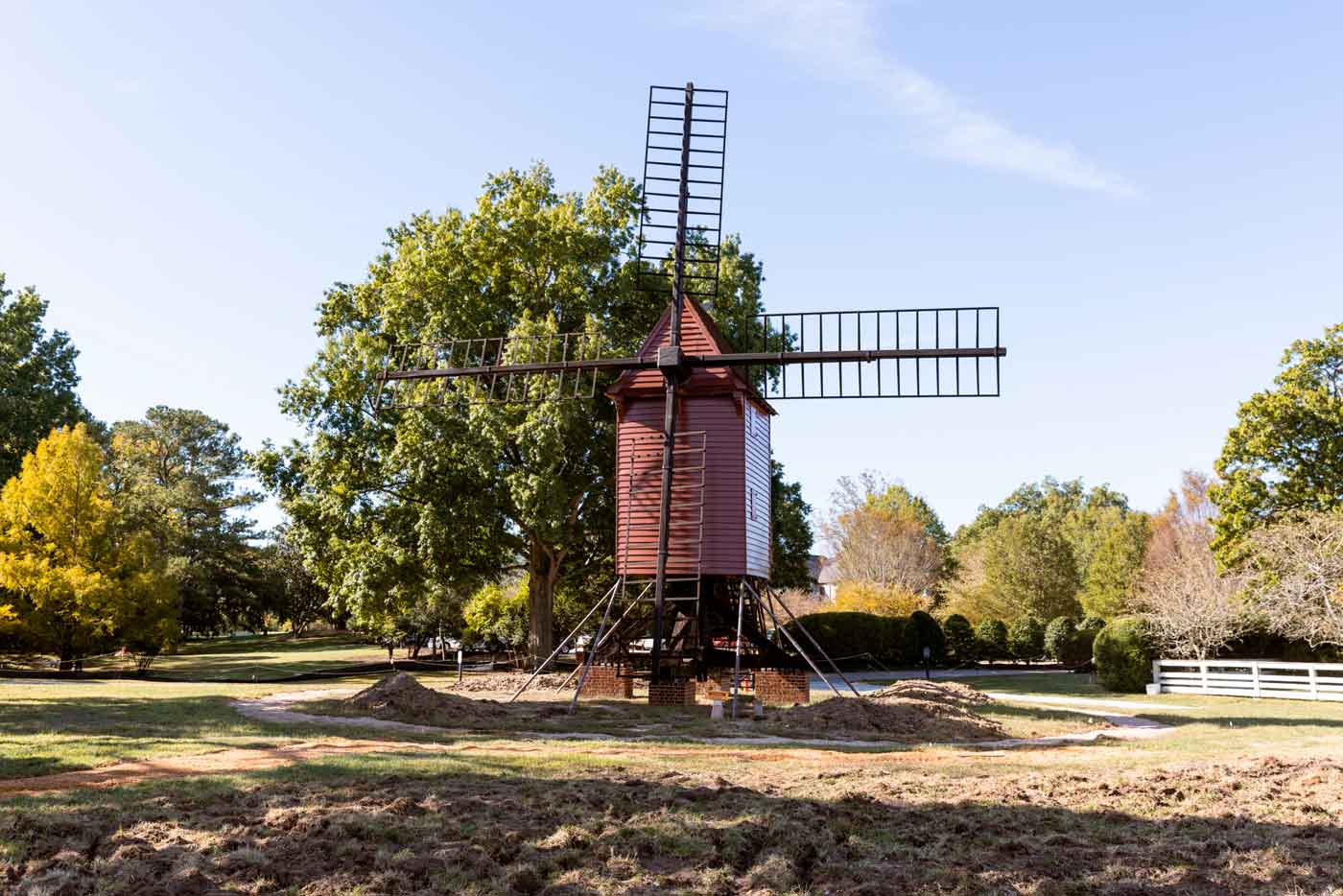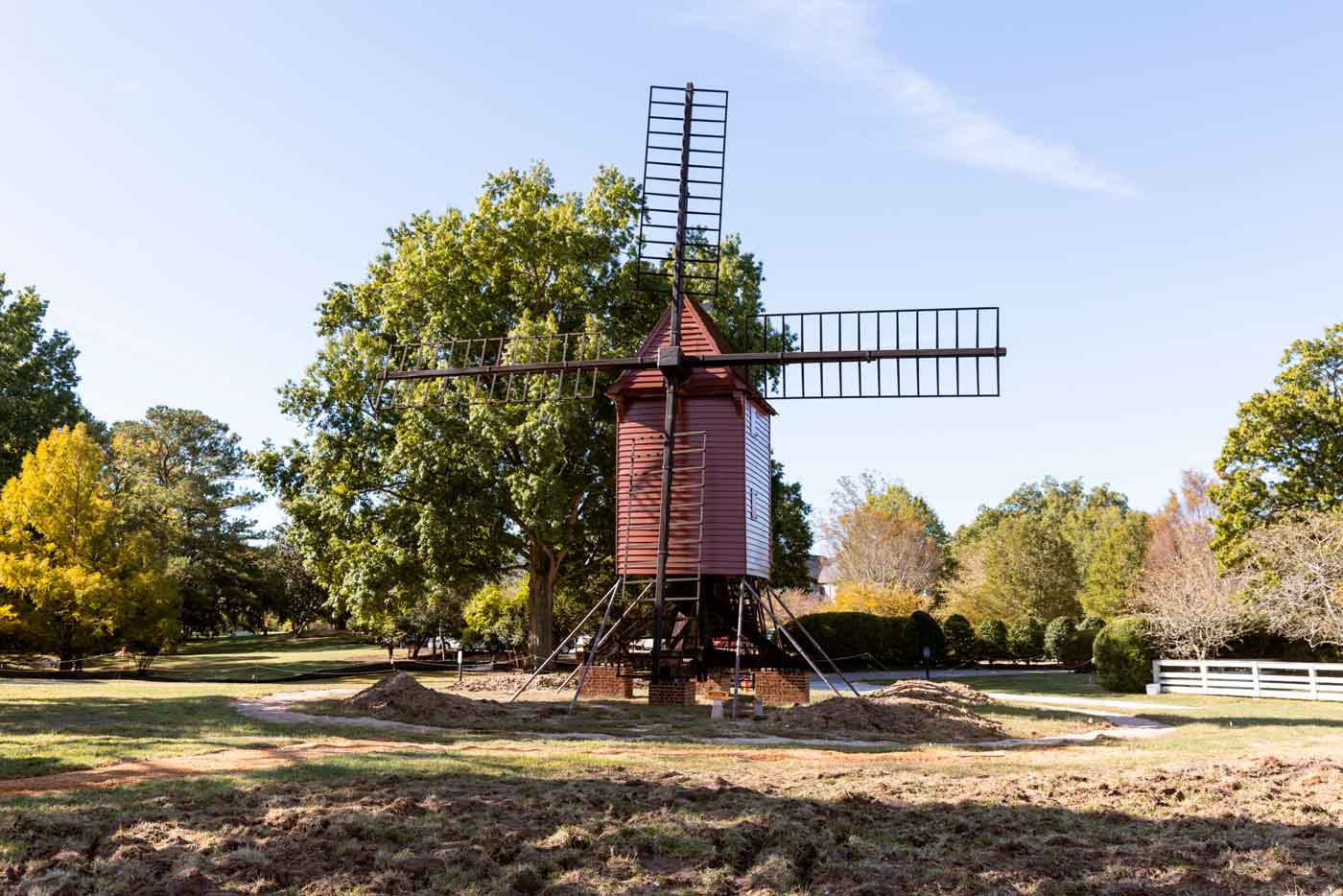Visit Robertson’s Windmill, located at Ewing Field. Designed and built between 1955 and 1957, the reconstructed Windmill is based on the 1636 Bourn windmill in Cambridgeshire, England.
History of the Windmill

Harnessing wind power is not a new concept; windmills were used in the 18th century to industrialize labor intensive tasks like grinding grain into meal. There is documentation of Williamsburg residents owning windmills. For example, in 1723, William Robertson sold his land, house, and windmill to John Holloway. While it is unclear where that windmill was located, this is evidence that a Williamsburg resident owned one near the town. The original location continues to elude us, but it quite possibly was located where the Colonial Parkway is today. There is also a windmill recorded just south of the Public Hospital on the 1782 Frenchman’s map.
The windmill was originally reconstructed in 1956 and operated at the north end of the Peyton Randolph site. The design, called a post mill, is based on the 1636 Bourn Mill in Cambridgeshire, England. In 2010, the decision was made to move it to Great Hopes Plantation. Due to the condition of the moving elements, the building was in need of a major restoration. The move provided an excellent opportunity to work on the building and replace essential framing. On August 8, 2022, this iconic structure was returned to the Historic Area to be a part of the Historic Farming program at Ewing Field.
By the Numbers

Moving the Windmill
Learn More
Related Events
-
Tour: Meet the Gardener
Join Master Gardener volunteers as they answer questions about growing flowers and vegetables in the Historic Area.
CW Admission
-
Tour: Arboretum Central Historic Area
Learn about some of Colonial Williamsburg's most asked-about trees, how the colonists used them, and how they continue to be important today.
CW Admission
-
Homeschool Hands-On: Importance of Tobacco
Learn about to historic farming trade. See some tobacco firsthand and learn about how tobacco shaped the economy.
CW Admission



